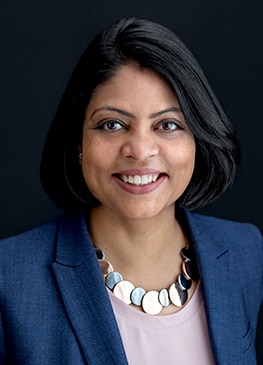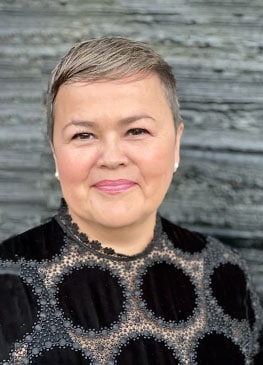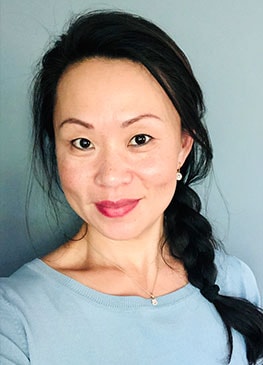Read the full interview here
-

Q. What were important early influences that shaped who you are as a leader today?
A. I’m originally from Romania. I come from a working-class family. Both my parents worked in factories and I spent most of my childhood and part of my teenage years in a communistic environment. Those years had a great impact on me as a person, and I had to work hard over the years to gain self-confidence.
The regime taught us in school that you’re not allowed to speak unless you raise your hand. Not all things were bad under Communism. I learned a lot about discipline. But I had to work hard to gain self-confidence – to speak when you have something to say and not be afraid of people judging you, and not being afraid to ask questions.
That was quite a journey for me over the years. But I learned to practice gaining more confidence, and I also got feedback from people, including mentors, that I should express my opinions more, and trust myself more. The biggest headwind I’ve felt, if I’m being honest, was the biases you usually have in your head as a woman. I never felt them externally.
-

Q. Was there a moment for you when you feel like you made the jump from manager to leader, not in terms of title, but in terms of mindset?
A. I was managing the in-house legal department of the company, and then the board promoted me to a position as deputy managing director of one of the subsidiaries. The jump in title was quite big, and the breadth of responsibilities was outside my comfort zone. I was given advice that people were now looking to me as their leader. I realized I had to approach my work differently so that people would follow me.
-

Q. What do you think is the hardest part of leadership?
A. The hardest part of leadership is that it can get very lonely at the top. But what I’ve learned, and I share this advice with others, is that you can’t be afraid to show your vulnerabilities, to show that you are human. If you do that, people see you as being much more approachable. Leaders can have a tendency to want to show they are strong, with a hard shell, but I think people admire leaders who show their human side.







